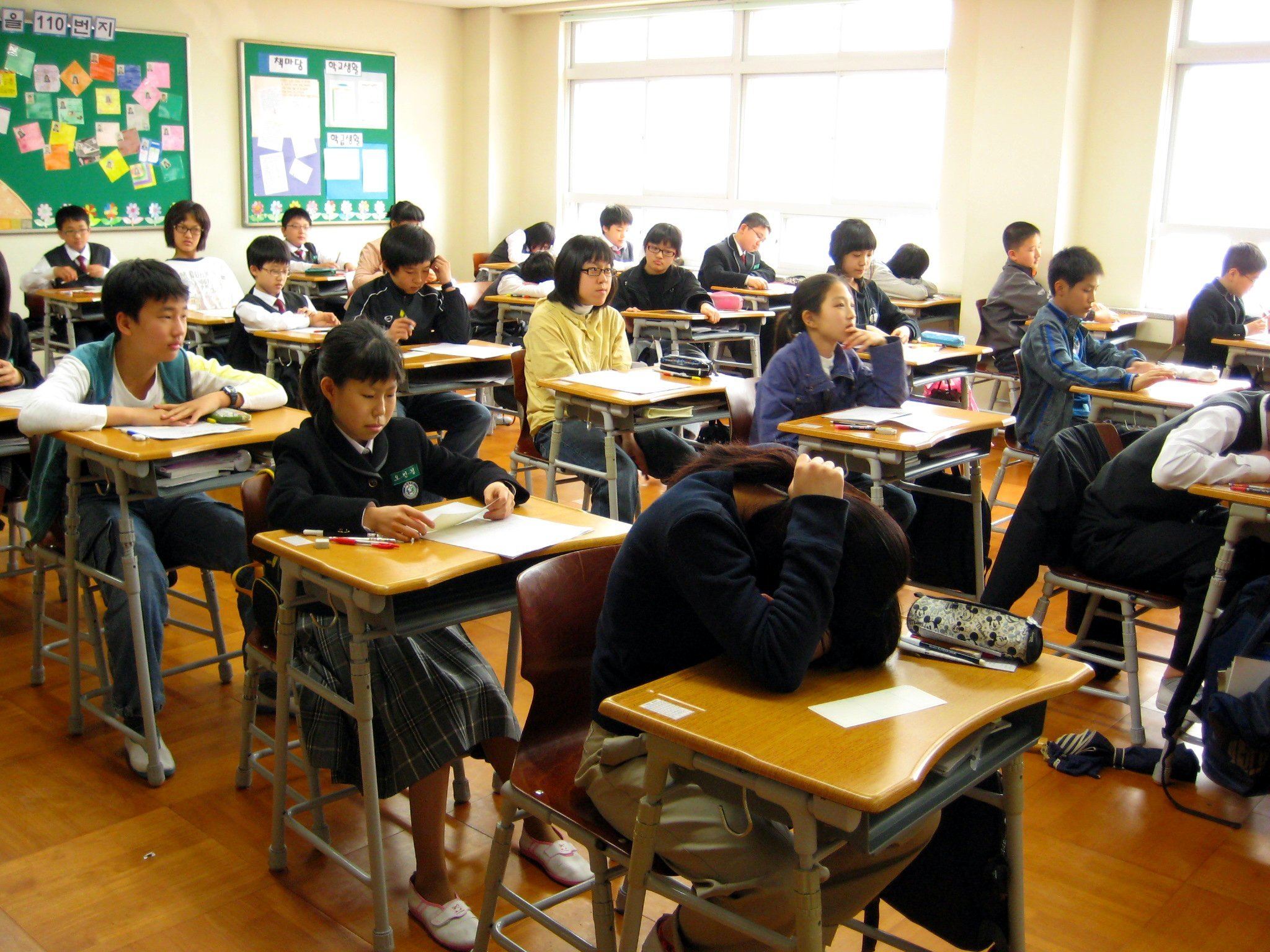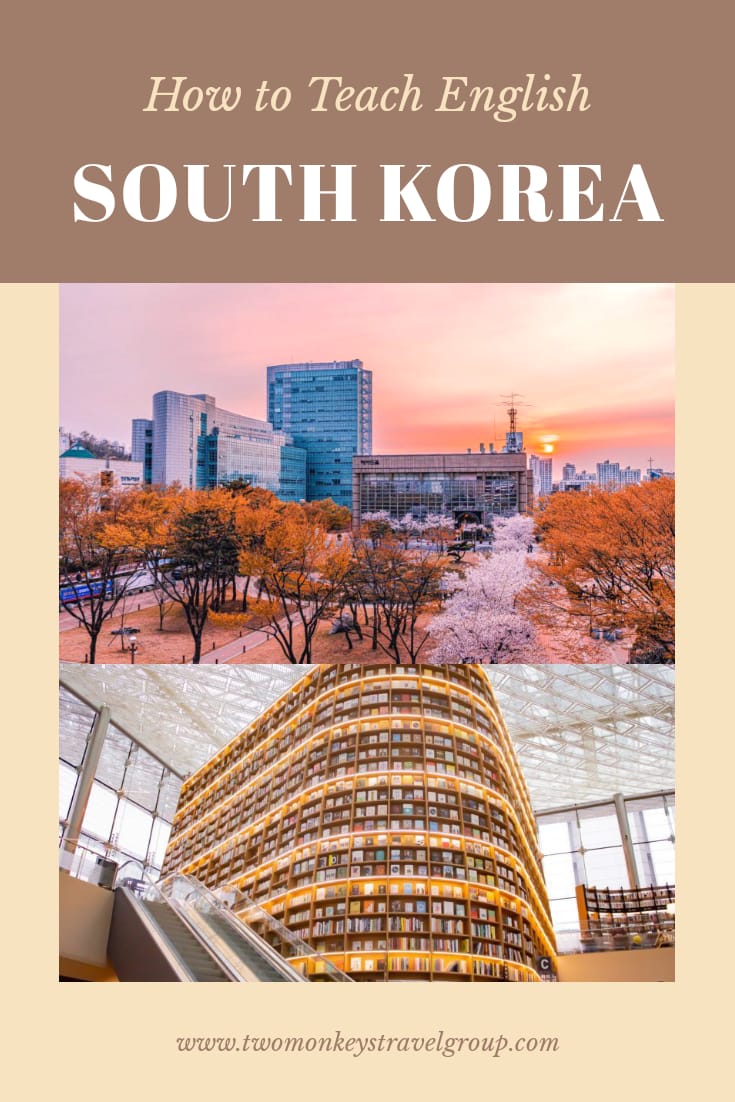How to Teach English in South Korea – TEFL Teaching Jobs in SoKor
Have the best experience and teach English in South Korea, the Land of the Morning Calm of Asia! A competitive salary awaits you! English teachers in South Korea are high in demand, so it’s a great choice to teach the language here.

Korea’s culture is rooted in harmony and family values, according to Confucian tradition. Confucianism requires Koreans to observe obligations to other people based on the hierarchy as in the case of the eldest son – ruler first, then parents, brothers from older to younger, then to his sons, followed by his wife and last to his daughters. All in all, their actions are always rooted in duty, respect for seniority, sincerity, and honor.
Kibun is highly observed, and it usually means mood, pride, feelings or saving face. Do not cause someone to lose face nor hurt his feelings, and it is generally accepted to give a white lie than tell the truth that hurts the kibun.
Learn more about teaching English abroad, read our article about the Introduction to teaching English.
We have also partnered with Let’s TEFL to offer accredited 120-hour TEFL courses with a 60% discount. Just use our exclusive promo code – TWOMONKEYS. Let’s TEFL courses include free certificate shipping!
Table of Contents
Salary for English Teachers in South Korea
English teachers in Korea can receive a salary ranging from $1265 to $2,500 a month.
Cost of Living while Teaching English in South Korea
Accommodation: Employers usually provide for the accommodation of English teachers. If not accommodation costs range from $800 in a location outside Seoul, the capital city, to $1,900 a month in key cities like Seoul and Busan.
Transportation: It would be more practical to get a monthly transport pass at $46 a month. If you’re taking the taxi, five miles distance costs $10. On average, the monthly cost is $100.
Food: Relatively cheap, dining out or eating at home will not cost you much. Food prices are low because of Korea being mainly agricultural land. For example, you can have lunch at a café for $6, a budget dinner in a restaurant for $12, and in a fancy one for $25. You can also live on Korean delicious, wide array of food for $300 a month
Pros of Teaching English in South Korea
- If you were hired by a public school, you will enjoy these benefits on top of your salary: free housing, entrance and exit allowance of 1.3 million KRW each, renewal bonus for every renewal of the contract, paid vacation of 18 to 21 holidays, 50% health insurance, tax exemption for first two years, and one-month severance pay upon completion of the contract.
- A work assignment in a private school may have higher pay than public schools.
- Lastly, you can choose where to teach if you choose to teach in hagwons only or smaller private schools, and expect benefits like airfare, housing, and medical insurance. You can get to know your co-teachers and students well in a small, private hagwon.
Cons of Teaching English in South Korea
- Smaller hagwons may not offer a lot of vacation time as public schools do. Choose wisely and carefully and avoid shady contracts and recruiters.
- You may work harder with longer hours and more classes than a public school teacher if you work in a hagwon.
- If you’re working with a shady hagwon, contracts are not followed to the letter- it depends on the owners of the hagwon. Hagwons are private businesses that do not offer a lot of holidays. Speak to the current teacher about job conditions.
- Koreans are very concerned with physical appearance. If you have dark skin and a little overweight, it might have an effect on how some Koreans might treat you. Caucasian features are accepted and favored, and if you have Caucasian features you already have one foot in the door regardless of your qualifications to teach.
- A public school assignment will allow you to teach one class per week, to 40 students in one class. It doesn’t really give a lot of time for you to get to know them better, and some teachers admit that the workload can get tiring.
- Difficulty in finding a public school position, as the requirements are stricter than those of private schools.

How to Find English Teacher Jobs in South Korea
You can apply through different websites offering job listings and placements, different TEFL sites, or through a recruitment agency. Use social media like FB groups. Scout for the specific job posting you want in a specific location you want to work in, chances are you’ll be able to find something as Koreans love to study English and has many private schools and language academies for learning English.
A good resource for Filipinos is WorkAbroad.ph.
Where to Teach English in South Korea
Seoul and Busan, key cities in Korea are your best options, as the majority of private language institutes are located in these cities, called hagwons. Large companies may also have corporate in-house programs for employees and you can try these positions as well. You can also try your hand at University language institutes if you have a master’s degree and a TEFL certificate with prior teaching experience. Public schools, as mentioned can also be an option for those with higher degrees.

Requirements for TEFL Teachers in South Korea
If you’re looking for a public school position, expect that requirements for Asians like Filipinos would be stricter than teacher counterparts in Western countries. Most are also required to have a post-graduate degree and teaching experience prior to getting hired.
In addition, you may land a teaching position with a Bachelor’s degree, TEFL certificate by applying directly to schools (private schools) that post jobs online.
How to Process a Visa for South Korea
Korean tourist visas for Filipinos is free, but many other countries will need one. You need to fill out application forms that can be downloaded from the embassy’s official website, and submit basic requirements to the Korean embassy in your country. After that, you can get your visa anytime from 3 days to a week.
Employers usually process your working visa before you depart your home country. Furthermore, here are the basic requirements that you need to process a work visa for Korea.
- Completed application form
- Passport valid for the next six months
- Photocopy of passport
- 1 passport size colored photo
- Visa issuance number confirmation from the Ministry of Justice in Korea
- 2,250 visa fee payment
- Employment contract

South Korea: Lifestyles, Customs, Do’s and Don’ts
In social gatherings, wait to be introduced. When leaving, say goodbye and bow to each person present. During mealtimes, wait to be told where to seat, as well as the oldest person to start eating. Never point chopsticks at people. When it’s time to leave, say goodbye and bow to each person individually.
- Remove shoes before entering the house of a Korean.
- Like the Japanese, Koreans prefer to do business with someone they know.
- Don’t leave any leftovers on your plate.
- Practice speaking concisely, go directly to the point.
- First business meetings are considered a time to get to know each other.
- Dress conservatively.
Start a new adventure and teach English in South Korea! But first, get a TEFL certification online to prove your relevance in teaching. We have partnered with Let’s TEFL to offer accredited 120-hour TEFL courses with a 60% discount. Just use our exclusive promo code – TWOMONKEYS. Let’s TEFL courses include free certificate shipping!
World TESOL Academy Accreditation
World TESOL Academy courses are now accredited by not just one but two internationally recognized accreditation bodies. Once you complete your course, you will have an education certificate that’s accredited by both Accreditat and CPD.

Are you on Pinterest? Pin these!





I am very interested in teaching English in South Korea as I have the experience and qualifications required and I will be very willing to send my CV to you. Please, provide me with an email address so that I can do so, thanks.